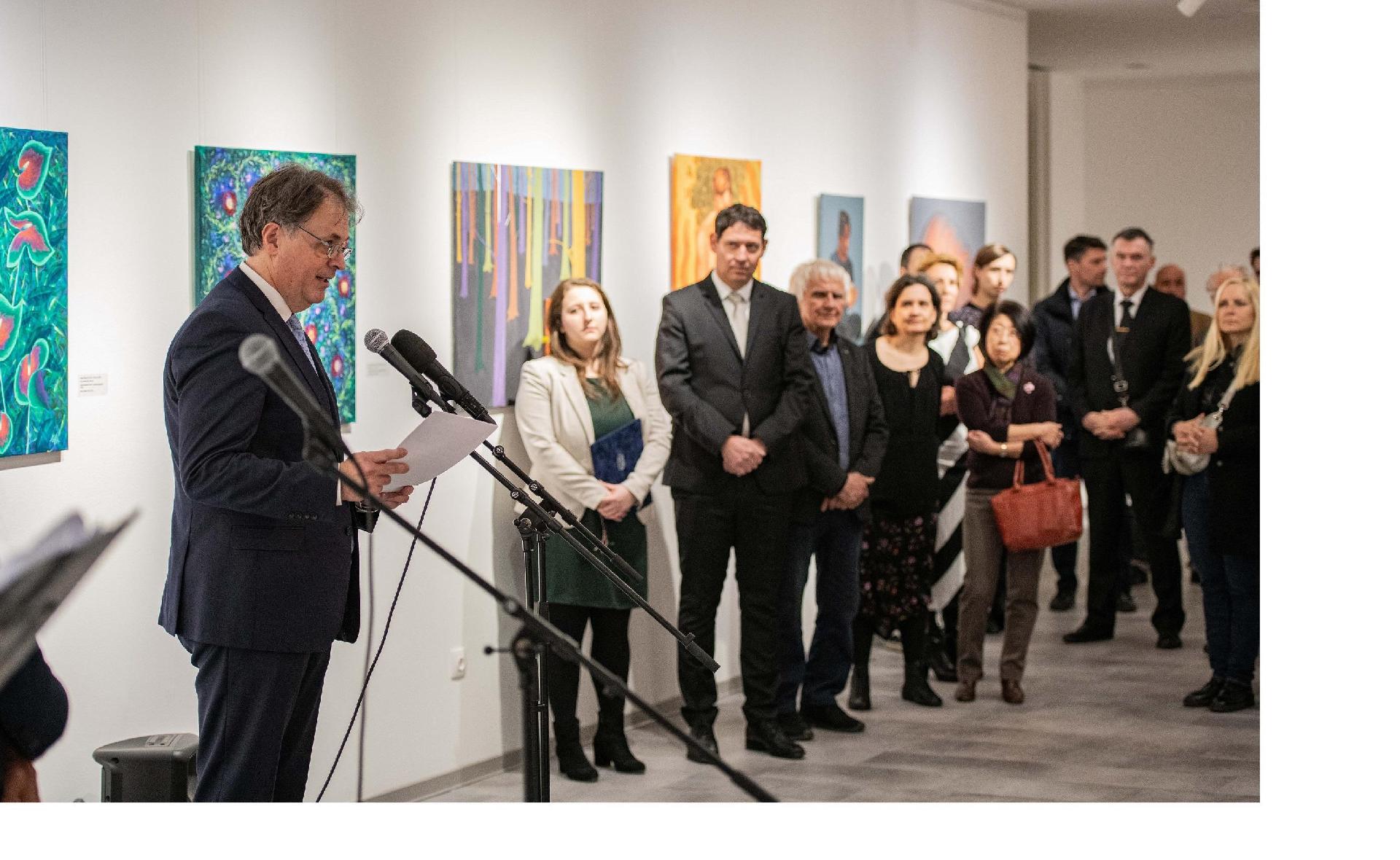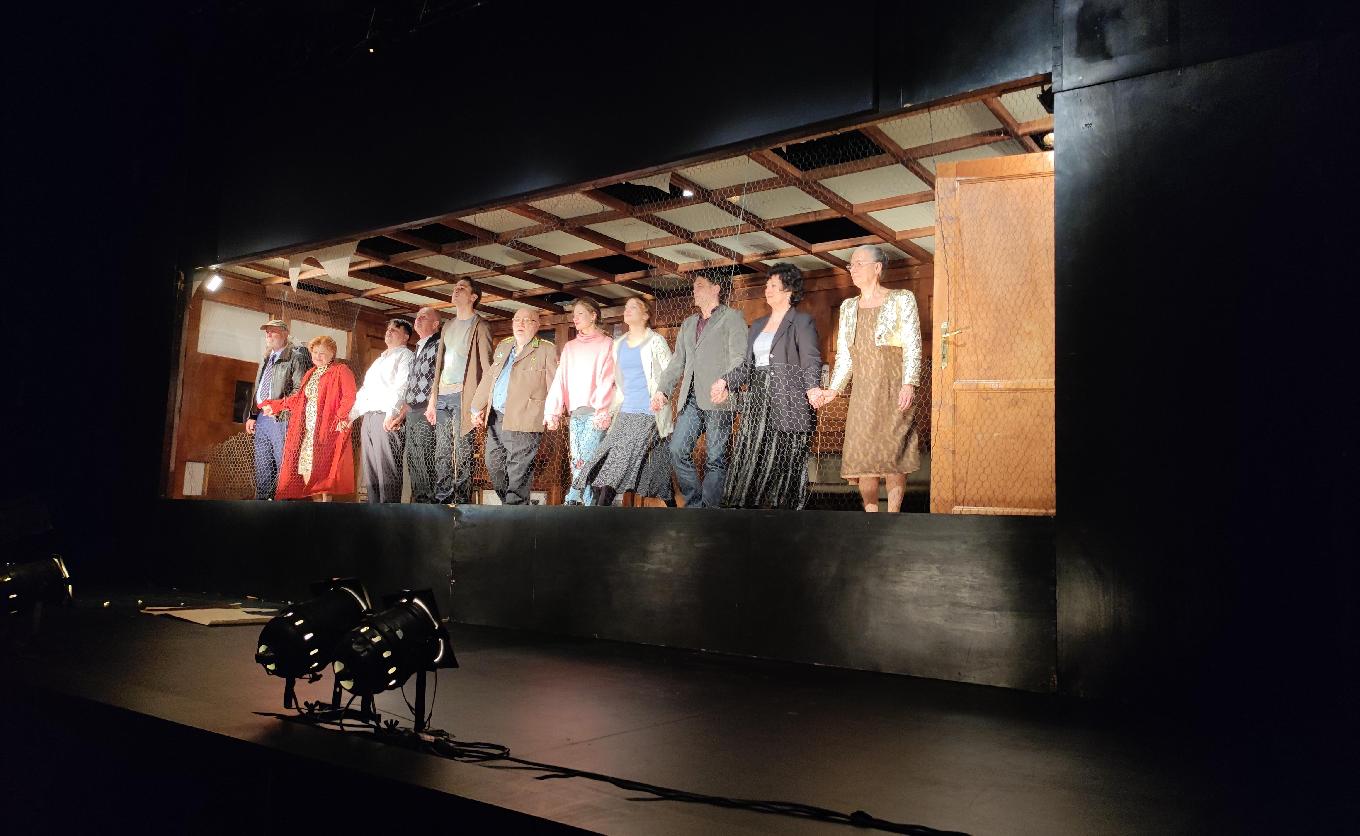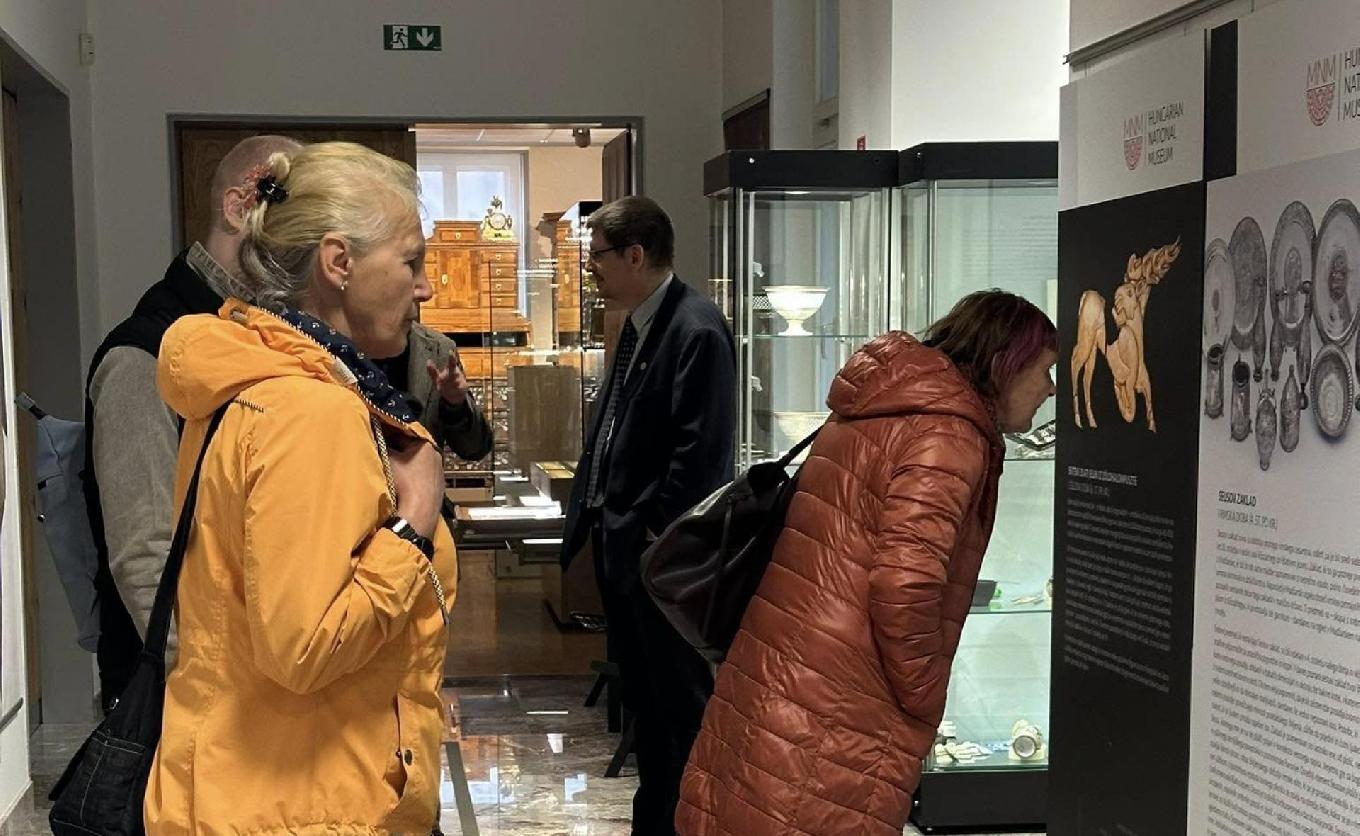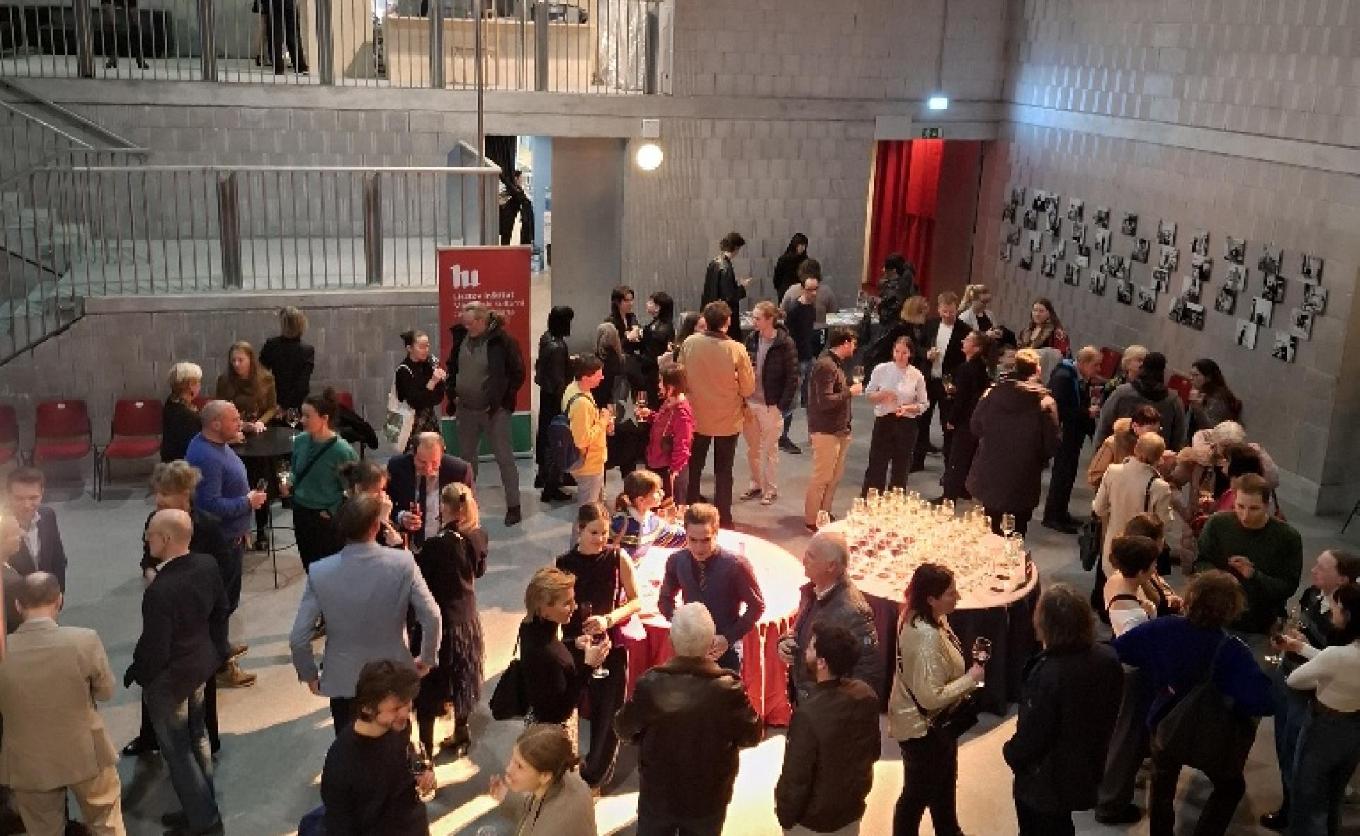
Spring Buzz in Ljublana
After long preparations, the gallery of the Liszt Institute in Ljublana reopened with a renewed exterior. The Institute actively participated in the guest performance of the Miskolc National Theatre in Ljubljana and presented the most valuable treasures of the Hungarian National Museum in a poster exhibition. On March 19th, the audience had the opportunity to get acquainted with the Slovenian translation of Dr. Sándor Ferenczi's famous „Clinical Diary” („Klinikai Napló”), and Bálint Szimler's film Black Dot („Fekete Pont”) was also screened. The diverse cultural programs generated great interest and attracted many Slovenian visitors who are interested in Hungarian culture.
After many years of preparation, on March 5th, the gallery of the Liszt Institute in Ljubljana reopened with a renewed exterior, featuring the exhibition titled „Rábavidék – Imagination and Reality” („Rábavidék – Képzelet és Valóság”) from the Szentgotthárd International Artist Colony. The exhibition was inaugurated by Gábor Csaba, Deputy State Secretary for Cultural Diplomacy, and Anžej Frangeš, Director-General of the European Affairs Directorate at the Ministry of Foreign Affairs and European Affairs of the Republic of Slovenia. The exhibition features works by György Csuta (HU), Ferenc Kovács (HU), Hajnal Papp (HU), István Vanyúr (HU), Anna Laura Pálcsa (HU), Zoltán Fodor-Lengyel (HU/ES), Endre Göntér (SLO), Ferenc Király (SLO), Darja Štefančič (SLO), Robert Jurak (SLO), Nedim Hadži Ahmetović Mafa (SRB), and Francesca Brivio (IT), which were framed within the exhibition concept by art historian and curator Pavel Toplak. At the event, Zoltán Kvanka, a permanent member of the Slovenian Philharmonic, performed works by Béla Bartók, after which the guests had the opportunity to taste delicacies from the Rába region, courtesy of the Federation of Slovenes in Hungary.
On March 7th, the Miskolc National Theatre performed Henrik Ibsen's play titled „The Wild Duck” on the stage of SNG Drama. The play was staged by director Gábor Rusznyák based on the Hungarian translation of László Kúno. The sold-out performance was presented in Hungarian, with Slovenian subtitles. After the performance, the Ljubljana Liszt Institute hosted the theater audience and artists for a toast.
On March 17th, a poster exhibition titled “The Most Treasured Treasures of the Hungarian National Museum” (“A Magyar Nemzeti Múzeum Legféltettebb Kincsei”) opened at the Slovenian National Museum. The exhibition was presented as part of the Muzeoforum program series, through which members of the Slovenian Museums Association had the opportunity to learn about the characteristics of Hungarian museology. At the Hungary-focused event, Dr. Krisztina Müllerné Lovas, Head of Department at the Hungarian National Museum, and Bálint Havasi, Director-General of the Zalaegerszeg Museums Directorate, presented the work of their institutions. The event also provided an excellent opportunity for the two Hungarian museums to build connections with Slovenian institutions, which could later lead to professional collaborations.
On March 19th, the translated volume of Dr. Sándor Ferenczi's Clinical Diary (1932) („Klinikai napló”) was presented at the Liszt Institute in Ljubljana. The work provides a deep insight into the intertwining of the author's personal and professional life. The “Clinical Diary” also includes a critique of the classic psychoanalytic stance of detachment, advocating for greater openness in the therapeutic process, while also revealing Ferenczi's personal experiences with Freud. The book was presented to the Ljubljana audience by Zoltán Pap, psychoanalytic therapist, and Miran Možina, the author of the preface to the “Clinical Diary” and the editor of the publication.
On March 20th, Bálint Szimler's film titled „Black Dot” („Fekete pont”) was screened at the Odeon Cinema in Izola. The film won the main prize at the 35th Ljubljana International Film Festival (LIFFE) in 2024. The work explores various educational systems and their consequences from the perspectives of both students and teachers.




